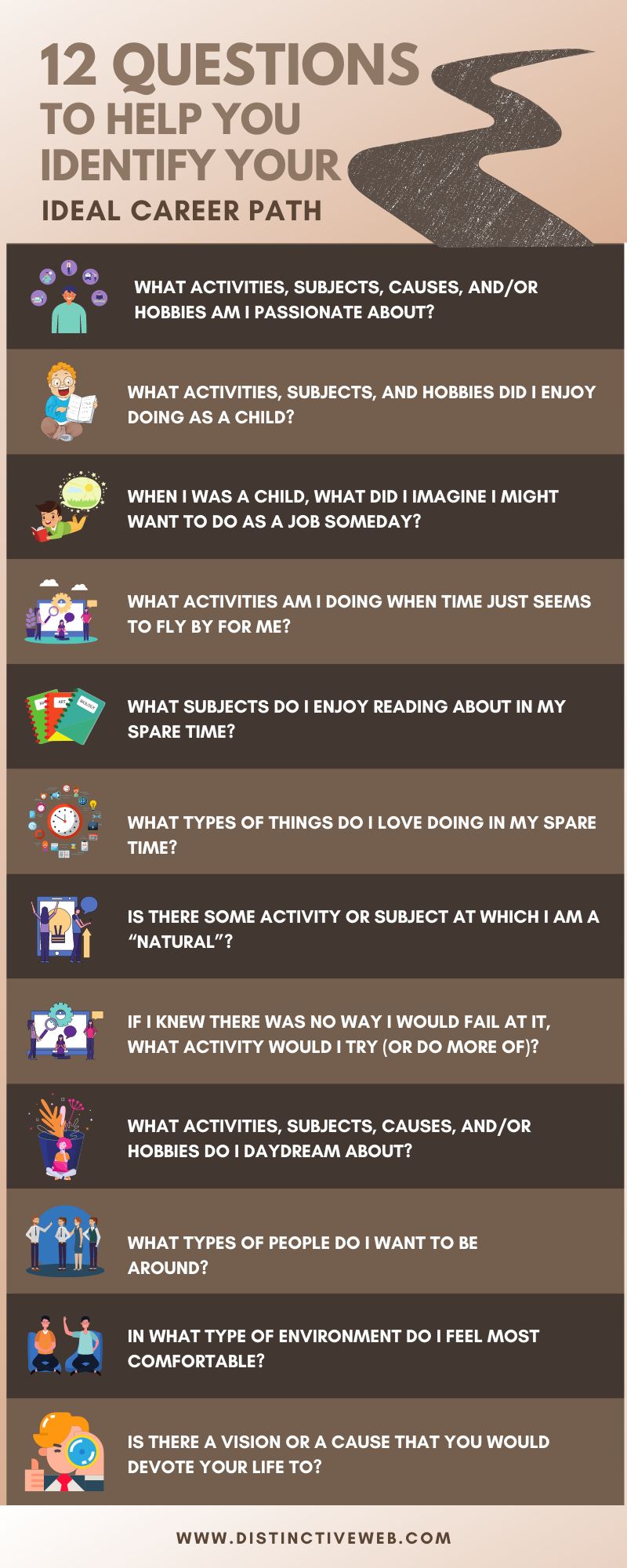
How to find the best career path for you? It’s a question that many people struggle with throughout their professional lives. Whether you’re a recent graduate embarking on your first job search or a seasoned professional considering a career change, identifying the right career path can be both exciting and daunting.
Weather forecasters can’t reliably predict the weather three days from now. How is a 22-year-old supposed to pick the right career for the next 40-plus years? How about a 45-year-old who finds themselves in an unfulfilling career and wants a change, but feels held back by indecision?
Most of us will contemplate a change in our career path at some point. It might be a conscious decision or an unexpected job loss that is the genesis of a change. Either way, the thought of a new career path can be both thrilling and overwhelming.
The Importance of Choosing the Right Career Path
The major challenge that many people face, is deciding on a career path. We spend so much of our lives working. In fact, the average worker will spend 90,000 hours working over the course of his or her life. 90,000 hours! That is a lot of time to devote to a job you don’t love.
Confucius said,
“Choose a job you love and you will never have to work a day in your life.”
Heed his advice, and you’ll make those 90,000 hours of your life so much more enjoyable and rewarding!
Discovering Your Dream Career
Have you ever been involved with an activity and found that the time just flew by — that you “lost time” because you became so engrossed in the task at hand?
How about an activity that made your energy level soar?
Do you have a hobby or some other activity that you are passionate about and find deeply fulfilling because you feel like the work you are doing really “matters” and makes a positive difference in some way?
If you have experienced any or all of the above, you know what it would be like to find work aligned with your life purpose — work that you might define as your “calling” or the profession for which you are uniquely and ideally suited.
The Struggle to Identify Your Best Career Path
While some people just “know” their ideal profession and calling, most people struggle to identify their best career path, often under the pressure to just make a living.
Certainly, your career goals need to be filtered through the business and economic realities of your life, but with some introspection and analysis, it is very possible to not only make a comfortable living but to do so in work that is aligned with your true professional calling and life purpose: following your ideal career path.
12 Questions to Help You Identify Your Ideal Career Path
The career coaching process to assist people in identifying a calling and developing a career plan is usually a multi-stage process that involves looking at your values, motivators, interests, knowledge, skills, abilities, experience, and more. While there are validated assessments to help you understand many of these factors, the vast majority of the career design process involves deep thought and introspection. The following 12 questions will get you started:
- What activities, subjects, causes, and/or hobbies am I passionate about?
- What activities, subjects, and hobbies did I enjoy doing as a child?
- When I was a child, what did I imagine I might want to do as a job someday?
- What activities am I doing when time just seems to fly by for me?
- What subjects do I enjoy reading about in my spare time?
- What types of things do I love doing in my spare time?
- Is there some activity or subject at which I am a “natural”?
- If I knew there was no way I would fail at it, what activity would I try (or do more of)?
- What activities, subjects, causes, and/or hobbies do I daydream about?
- What types of people do I want to be around?
- In what type of environment do I feel most comfortable?
- Is there a vision or a cause that you would devote your life to?
Analyzing Your Answers
Did any themes emerge in your answers to these questions? Even if you haven’t precisely identified your calling and defined your dream career from this exercise, many people find important clues that help lead them on a path that eventually leads to an ideal profession.
Don’t give up on your pursuit. The feeling of fulfillment and contentment that comes from working in and making a living from a job that is your “calling” is well worth the time and effort.

Exploring Different Career Paths
Once you’ve reflected on these questions, it’s time to explore different career paths that align with your interests, skills, and values. Here are some steps to help you in this process:
The Role of Resume Writing in Career Path Development
As you explore different career paths and work towards your ideal profession, it’s crucial to have a well-crafted resume that effectively communicates your skills, experiences, and career aspirations. Here’s how professional resume writing can support your career path development:
Developing Your Career Path: Next Steps
Once you’ve identified potential career paths that align with your interests and skills, it’s time to take action. Here are some steps to help you move forward:
Conclusion: The Journey to Your Ideal Career Path
Identifying and pursuing your ideal career path is a journey, not a destination. It requires self-reflection, research, and often, a willingness to take calculated risks. Remember, it’s never too late to make a change and pursue a career that truly aligns with your passions and values.
As you navigate your career path, don’t underestimate the power of a well-crafted resume. It’s not just a document listing your job history; it’s a strategic tool that can help you transition between roles, highlight your most valuable skills, and ultimately, land opportunities that align with your career goals.
If you need further support in identifying your ideal career path or crafting a resume that effectively communicates your value, consider working with a professional career coach or resume writer. They can provide personalized guidance and help you create a compelling narrative that showcases your unique skills and experiences.
Remember, the best career paths are those that not only provide financial stability but also allow you to utilize your strengths, pursue your passions, and make a meaningful impact. With careful planning, ongoing self-assessment, and a willingness to adapt, you can create a fulfilling and successful career path that evolves with you throughout your professional life.









